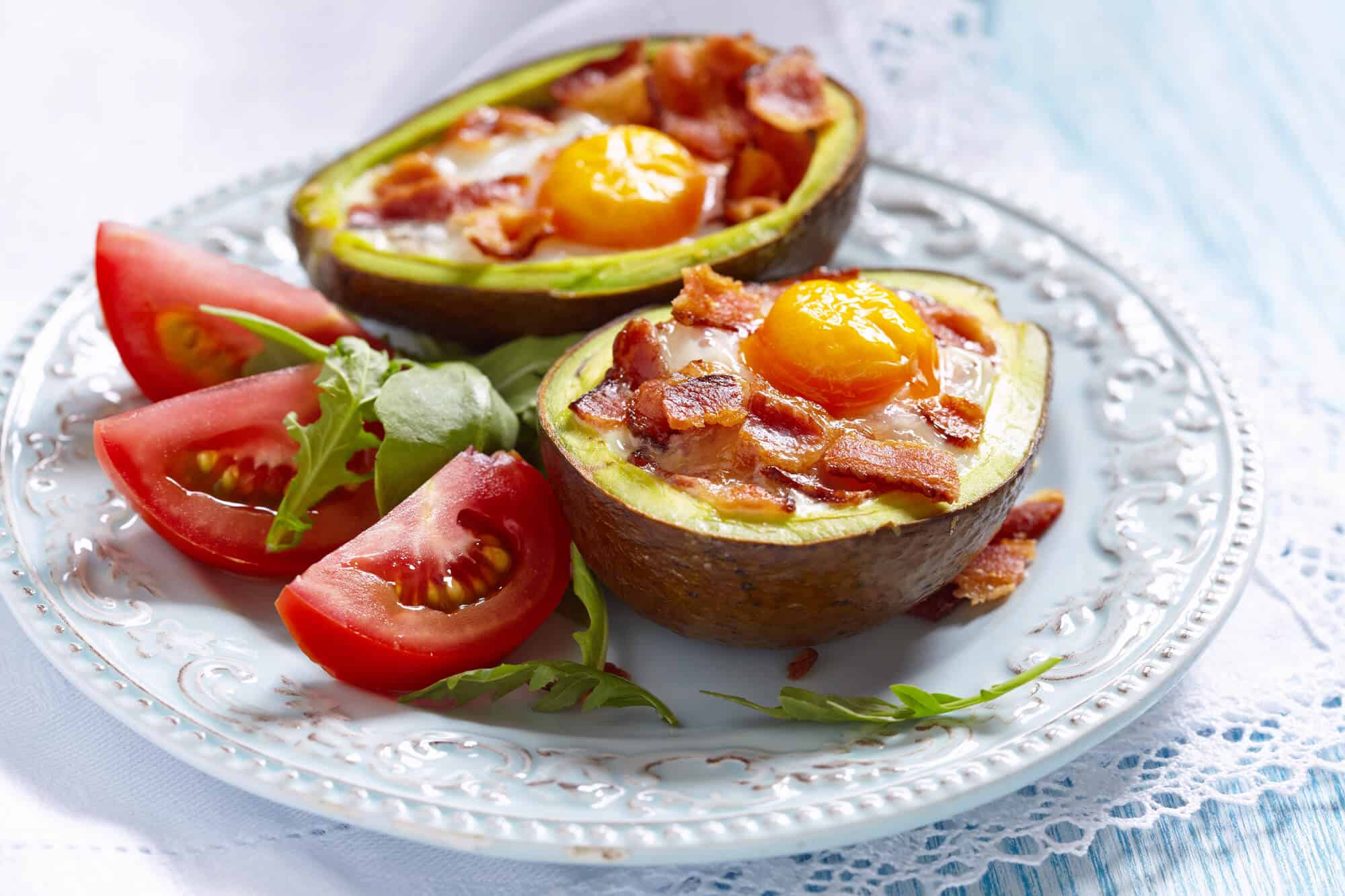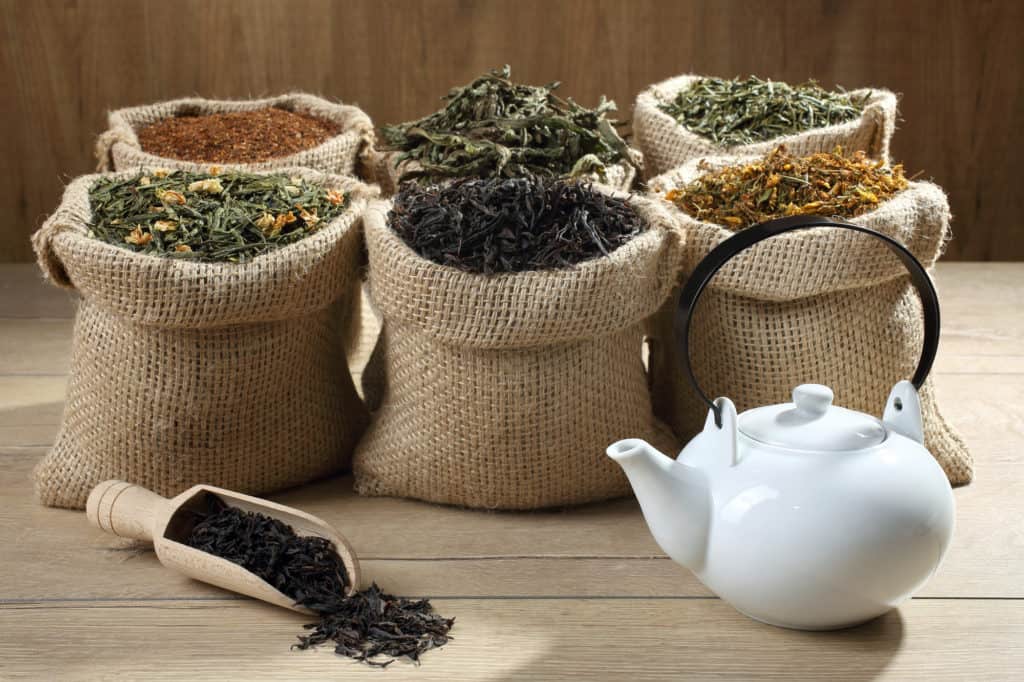
Drinking Tea May Help Your Weight Loss
 There have been many studies undertaken over the years to gauge the effectiveness of tea for weight loss.
There have been many studies undertaken over the years to gauge the effectiveness of tea for weight loss.
Most of these studies have showcased a positive benefit for multiple types of tea.
The most commonly discussed of these drinks is green tea.
There are several reasons that green tea helps you lose weight, including the caffeine and the catechin nutrients in each cup.
Catechins are chemicals that help your body operate more efficiently and smoothly.
The catechins in green tea are designed to help your body digest its food more thoroughly and even help to metabolize your fat more efficiently.
Multiple studies have showcased this effect and have caused a large number of people to turn to green tea.
However, newer studies showcase the positive benefits of black tea, a type that had been previously ignored by many.
Black Tea is Also Beneficial
A new study in Science Daily reported that black tea could be just as useful for weight loss as green tea.
That’s because it provides the same kind of catechin ingredients found in green tea.
Caffeinated teas also provide the same level of metabolism boost that you see with these other types of tea.
The one downside is that black tea is usually more processed than green tea.
However, black tea is often used to make iced tea or other types of healthy tea recipes.
Teas May Destroy Fat
In a study reported in Advances in Nutrition, it was found that tea actually helps to oxidize and destroy fat when you are at rest.
This increase in fat metabolism occurred both immediately after drinking tea.
For example, those who drank tea regularly saw a higher amount of fat oxidation.
These effects were noticed in several types of tea and weren’t limited to just green or black teas.
While non-caffeinated varieties may have enough catechins to help with weight loss, they won’t be as effective as those with caffeine.
Drinking Tea Can Act As An Appetite Suppressant
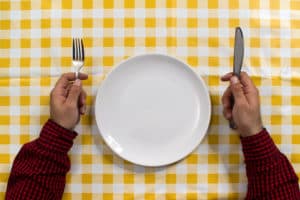
Drinking tea can also suppress your appetite and make you less likely to eat an excessive amount of food.
In the March 2010 edition of the journal “Pharmaceuticals,” the article “Phytochemicals in the Control of Human Appetite and Body Weight” discussed a few ways that tea helps manage appetite.
While this study wasn’t focused strictly on tea, it did discuss phytochemicals that could block some problematic elements in your body.
For example, it was found that it could prevent pancreatic lipase and Amylase in the body.
These items in the body are problematic because they interfere with the way that it absorbs and metabolizes fat.
Those with abnormally high levels often find it very difficult to lose weight.
The high content of beneficial phytochemicals in various forms of tea make it a useful way to manage appetite.
For example, it was found that green, black, and oolong tea had a lot of these beneficial chemicals.
Oolong tea, in particular, was found to help suppress the production of glucosidase in the body.
This lower level helped to decrease carbohydrate absorption healthily.
Green tea was found to help suppress the production of these elements, particularly: epigallocatechin gallate; epigallocatechin; epicatechin gallate; and epicatechin.
Black tea was found to have similar effects to green tea, mainly due to its high caffeine content.
All of these benefits helped to decrease the appetite and prevented excessive eating.
The Results
In various studies, it was found that the appetite-suppressing abilities of these teas were capable of creating positive effects.
In a tea study of oolong type over a 12 week period, it was found that a person could lose 1.5 percent of their body weight, a similar amount of their BMI, decrease their waist circumference by 2.0 percent, and lower their body fat mass by 3.7 percent.
Similar results were reported when drinking green tea or black tea.
It was found that people who ingested it had a 4.6 decrease in body weight caused by drinking high-quality tea.
Many of these benefits were tied to the reduction of appetite experienced by drinking tea.
Those in the study who drank tea also reported feeling less inclined to binge or snack between meals.
Be Sure You Choose a Tea You Like
 Drinking liquids that you enjoy is a crucial part of your omad diet success.
Drinking liquids that you enjoy is a crucial part of your omad diet success.
That said, not all teas are made equal.
There’s a good chance that you may choose a tea type that you simply do not enjoy or satisfies you.
Just a few of the high-quality teas that you can drink include:
- Green tea – Kabusecha, Matcha, Genmaicha, Hojicha, Shincha, Ichibancha, Nibancha, and Sanbancha
- White tea – Yi Zhen Bai Hao, Bai Mu Dan, Gongmei, Shou Mei, and Fujian New Craft
- Oolong tea – Tie Guan Yin, Da Hong Pao, Dan Cong Tea, and Ali Shan
- Black tea – Assam, Darjeeling, Nilgiri, Ceylon, Keemun, Yunnan, and Kenyan
- Herbal teas variations of the teas above
Master Several Tea Brewing Techniques
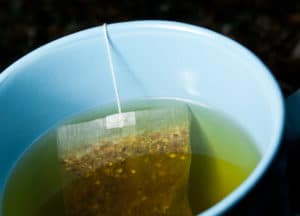 Healthily preparing your tea ensures that you enjoy the best taste and get the maximum benefits.
Healthily preparing your tea ensures that you enjoy the best taste and get the maximum benefits.
When you have the time for it, boiling tea on a stove top is a relaxing preparation method.
It is the oldest technique and one that helps to infuse your tea with a maximum amount of benefits.
If you don’t have time for this method, you can purchase an electric teakettle that handles the process more quickly.
Below is a very popular choice among electric tea kettles.
No products found.
For example, you merely need to add a few tea bags to the top of the kettle, fill it with water, and press the preparation button.
This step will boil your tea and hold it in a simple container that you can use to serve it to yourself and others.
You can also pair this method with a thermos to keep your tea hot throughout the day. You can also add ice to your drink to cool it down a little bit before drinking.
However, you can also buy an iced tea maker for the summer when drinking hot brews seems difficult.
These machines work a lot like coffee pots but allow you to add ice to the container.
The containers that they use are designed to fit more comfortably in a refrigerator than a thermos.
I recommend this tea maker.
- Iced tea and iced coffee maker with 2 qt. pitcher capacity; Can brew tea bags or loose tea.700.0 watts
- Removable brew basket
- Auto shut-off after cycle is complete. Wattage: 700 watts, Batteries Required: No
- Creates single and double servings
- Programmed cleaning cycle
Why I like it:
- Whether you prefer loose or bagged tea, this tea maker can make both
- It has a convenient removable pitcher with 2QT.
- It also is inexpensive and has an auto shut off after the cycle is complete.
When making ice tea, try to brew your iced tea the day before you want to drink it.
This step will make sure that it is cold enough to drink.
The quickest way to get a single cup of tea is microwaving your water for a few minutes with a tea bag inside.
This method will infuse a surprising amount of tea into your drink in a short period.
Make sure to dip the bag in and out of the cup several times to let it seep.
While some may avoid this method, it can be surprisingly beneficial for those who are on-the-go.
In fact, one study found that microwaved tea was the healthiest kind.
That’s because it gets water hot more quickly and helps to seep a significant amount of tea in a short time.
Balance Tea Intake With Water
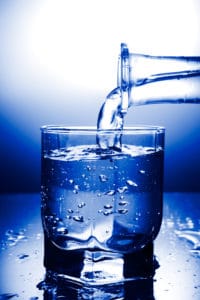
It is very important to balance your caffeine intake with a healthy amount of water.
Drinking one glass of water for every glass of tea you drink is a good idea.
It helps to improve your digestion, streamline your caffeine metabolism, and help avoid the slight dehydration that can occur if you drink too much caffeine.
Most teas drinks have about 50 milligrams of caffeine in each cup.
You can typically safely drink up to approximately 300 milligrams before you start suffering from severe dehydration symptoms.
Exceeding 300 milligrams is dangerous because it can cause you to suffer from headaches, upset stomachs, or experience the kind of jittery feeling you get when drinking excessive coffee.
As a result, you should be drinking anywhere from 6-10 glasses (including your tea) every day.
An increase in hydration like this will also improve your metabolism by lubricating your stomach and intestinal lining.
It can also help you urinate more freely and eliminate detrimental chemicals from your body.
If you are having a hard time ingesting this much tea and water, cut out one cup of each until you feel comfortable.
Stay Mindful When Drinking Tea
 Mindfulness is the art of being aware of yourself, your surroundings, and your physical and mental cravings.
Mindfulness is the art of being aware of yourself, your surroundings, and your physical and mental cravings.
Drinking tea can help you improve your mindfulness and make it more effective with your omad diet.
In fact, some people make a routine out of drinking their tea and use it as a moment to collect their thoughts and relax their body.
Just think of the way that British people stop their day for tea time.
This scheduled relaxation helps make it easier for you to enjoy your tea and think about your day.
The unique relaxation and calming benefits of tea make it particularly useful for this type of calming.
It can also be used to achieve other types of relaxation, including its use in the following ways:
- Improves your ability to meditate every day to clear your mind
- Boosts your ability to do yoga to stretch your body and relax your muscles
- Makes it easier to do strenuous or challenging activities
- Soothes severe types of muscle pains
- Relaxes the mind during and after an emergency situation
Mindfulness also helps you avoid the kind of damaging cravings that can disrupt your omad diet.
For example, you may suddenly feel an intense craving to eat potato chips or a large candy bar.
However, a good cup of tea can help you focus your mind and understand why you feel those cravings.
The extra focus and appetite suppression offered by tea help to make this task even easier.
Tea can also calm the kind of upset stomach that occurs when stress impacts your life.
Upset stomachs can make it more difficult for you to focus on getting through these difficult periods.
Drinking tea helps to avoid this danger by keeping your calm.
A calmer attitude also helps your tea diet by making it easier for you to stick to a tight schedule.
Resources
Science Daily: Black Tea May Help With Weight Loss
Cleveland Clinic: Healthy Ways to Drink Coffee and Tea

